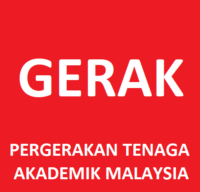PETALING JAYA: Academics have welcomed the government’s initiative to introduce a new comprehensive and inclusive history module to be taught at Akademi Kenegaraan Malaysia, the institute Prime Minister Anwar Ibrahim hopes will provide holistic and comprehensive nationhood training.
Tajuddin Rasdi, an architecture professor at UCSI University, said the Madani training module’s objective – which aims to educate students on the contributions to the nation made by all sections of the community – could help Malaysia’s diverse population foster a better understanding of each other and strengthen national unity.
However, he said the government should have publicised the module’s details for peer review before its implementation.
“It was mentioned that it will be based on national history, and in line with the Rukun Negara, but which part of history and Rukun Negara are we talking about?
“The Rukun Negara is in two parts, one of which is the five principles that emphasise the need for obedience. This is authoritative in nature.
“What we actually need is the first part, which emphasises the concept of unity, democracy, liberalism and progressivism,” Tajuddin told FMT.
Tajuddin said it is also important for history to be taught in a wider context, beyond the notion of Islamic-Malay ties, as constructed by many historians.
He pointed out that the Malays were once part of Hindu and Buddhist empires that previously controlled the region for nearly 2,000 years prior to the Islamic expansion.
“This should be emphasised, where we should see how every religion and race has contributed to the development of the nation,” he said, citing the role of Christian missionaries in providing school infrastructure.
On June 5, the government introduced the Malaysia Madani nationhood training module, which is reportedly based on national history, an understanding of the Federal Constitution, and an appreciation of the Rukun Negara.
Prime Minister Anwar Ibrahim said the module will train young people to become individuals of outstanding character with a love for the country.
He added that the module also emphasises the nation’s history – particularly appreciating the struggles and sacrifices of leaders and people from various races in achieving independence – and continuing that torch of struggle.
Eddin Khoo, who is the founder of the cultural organisation Pusaka, said introducing the module is the right move because its inclusive perspective can foster a sense of shared history, something currently lacking.
“An inclusive history module is less likely to be abused or used as a propaganda tool for the government because it is not divisive in nature,” Khoo added.
However, Khoo said the module should not be limited to the academy. Instead, he said, it should be implemented nationwide.
“It has to be more pervasive. It has to engage and capture the imagination of the public.
“There should be a serious and concerted effort to educate the entire public about our history through the media, through dialogue and through interactive sessions,” he added.
This article was originally published in Free Malaysia Today

